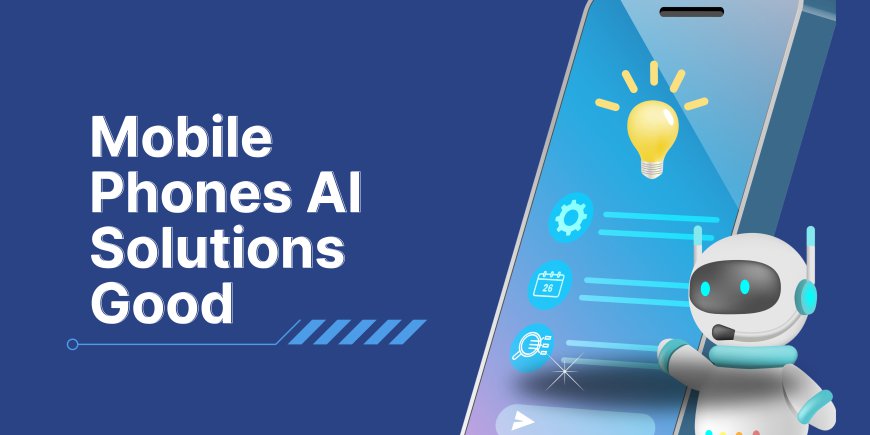Are AI-Powered Mobile Phones a Good Idea? Let's Dive In

AI-powered mobile phones are shaping the future of technology, bringing features that were once unimaginable. From smarter personal assistants like Siri and Google Assistant to advanced camera technologies that use AI to enhance image quality, these phones are designed to make life more convenient and intuitive. AI helps your smartphone learn your preferences, predict your needs, and offer personalized recommendations, whether it's suggesting the next song in your playlist or optimizing battery life to match your usage patterns.
One of the key advantages of AI in mobile phones is its ability to provide a seamless user experience. Features like voice recognition, predictive text, and intelligent photo sorting are now part of everyday smartphone use. AI also plays a crucial role in improving security, with facial recognition, fingerprint sensors, and even fraud detection algorithms safeguarding personal information. In healthcare, AI-driven apps are now able to monitor health metrics, offering real-time advice and analysis, making smartphones a more integral part of our daily routines.
However, while the benefits are impressive, AI-powered mobile phones come with their own set of challenges. Privacy concerns are at the forefront of this debate. With AI constantly learning from user data, questions about how this data is stored, used, and protected are more important than ever. Many fear that increased reliance on AI could compromise personal privacy, as sensitive data could be exposed to third parties or used for targeted advertising.
Moreover, there’s the issue of overdependence on AI technology. As our phones become smarter, there’s a growing concern about how much control we are handing over to machines. Will we lose critical thinking skills or human intuition as we rely more on AI for decision-making? Some, including notable figures like Elon Musk, have voiced concerns about the long-term implications of AI, especially regarding its impact on human autonomy and privacy.
In conclusion, while AI-powered mobile phones offer significant advantages by enhancing convenience, security, and personalization, they also pose challenges that must be carefully considered. Privacy risks and dependency on technology are crucial factors that will shape the future of AI in smartphones. In this deep dive, we explore both the upsides and the potential risks of integrating AI into our daily devices to determine if it's a smart move for users and society.
